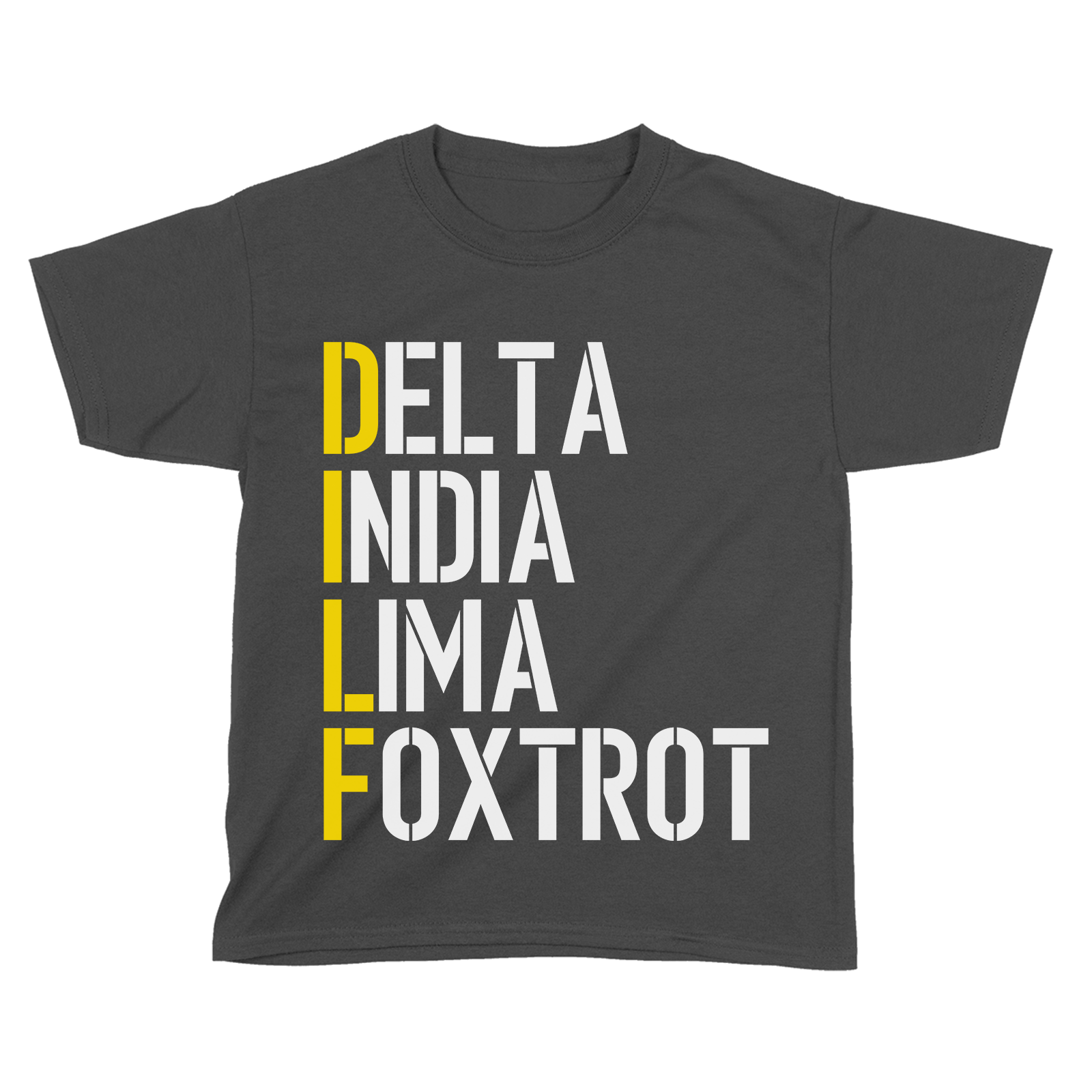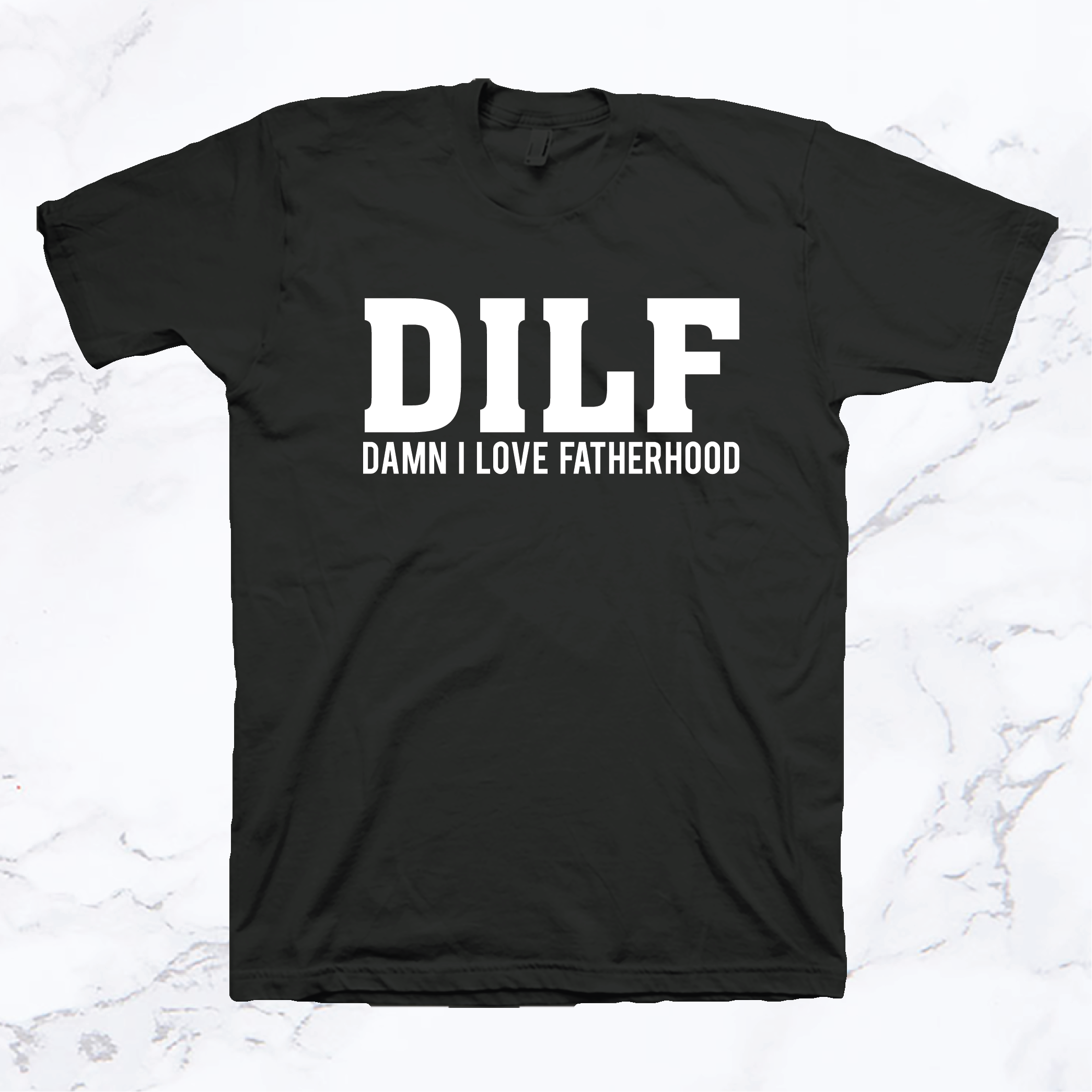Understanding The Appeal Of The Dilf - A Modern Look
The term "dilf" has, for some time now, been a part of how people talk about attraction, especially when it comes to older men who happen to be fathers. It is a phrase that, you know, has picked up a lot of steam over the past few decades, much like its counterpart that speaks to mothers. This particular bit of slang, so to speak, is mostly used to point out a father who is seen as good-looking, often in a way that is a little bit playful or cheeky, if you catch my drift.
As ways of speaking change and grow, which they always do, the rising interest in the idea of a "dilf" shows how our views on certain things are also shifting. It really does reflect a broader shift in how people see appeal and what qualities are considered attractive in men who are parents. This word, in some respects, points to a broader cultural moment, indicating how we talk about different kinds of appeal and what qualities catch our eye.
This discussion aims to shed some light on what this term means, where it comes from, and how it plays a part in general conversations. We'll explore the characteristics often connected with a "dilf," look at how it might compare to other similar terms, and touch upon its presence in various forms of media. The goal, basically, is to give you a clearer picture of this phrase without getting too bogged down in the details.
Table of Contents
- What's the Real Scoop on Dilf?
- How Does Dilf Fit into Today's Conversations?
- The Dilf in Pop Culture and Beyond
- Final Thoughts on the Dilf Concept
What's the Real Scoop on Dilf?
The phrase "dilf" stands for "dad I'd like to f***," and it came into being after the similar phrase "milf." This is, you know, a slang term that people use to describe a father who they find appealing in a physical sense. It's often used in a way that is a bit lighthearted, perhaps a little bit saucy, and not always meant to be taken with complete seriousness. The core idea is about noticing an older man, particularly one who is a parent, for his good looks or charm. This term, you see, has become quite common in informal talk, showing up in many different places where people chat about attraction and what they find appealing in others. It's a way of putting a label on a certain kind of person who, for some, holds a particular kind of appeal.
How Did the Term Dilf Come About?
The start of the term "dilf" is pretty straightforward; it was created as a direct echo of "milf," which had already found its place in common talk. It really is a simple play on words, just swapping out one family role for another to express a similar kind of attraction. This way of creating new words, basically, happens all the time in language, especially with slang. It allows people to quickly get across a specific idea or feeling about someone. So, the phrase itself is a product of how people communicate informally, taking a well-known structure and adapting it for a slightly different, yet related, purpose. It shows how language can be quite playful and adaptable, allowing new terms to pop up that quickly become part of everyday conversations, you know, when they catch on with enough people.
What Makes Someone a Dilf?
When people talk about what makes someone a "dilf," they usually point to a combination of things. It's often about a man who is older, who has children, and who is considered good-looking. Beyond just being a parent, there are often some physical traits that people associate with this idea. For example, the text mentions that these men can be quite fit, perhaps from the daily tasks of raising children, like pushing strollers or giving piggyback rides. You know, those everyday activities that can keep a person in good shape. There's also talk of them having a smile that really draws you in, a very appealing grin, and a kind of joyful, childlike spirit. This might come from spending a lot of time playing with their children, whether it's at the local park or even places like a big theme park. So, it's not just about being a dad; it's about a particular mix of appearance, a certain kind of physical presence, and a cheerful, engaging way of being that makes them stand out in a crowd, in a way that some people find very appealing.
- Lela Sohna Xxx
- Sydney Sweeney Nsfw
- Sugary Spire
- Omegle Feet
- %DA%A9%D9%84%DB%8C%D9%BE %D8%B3%DA%A9%D8%B3%DB%8C
How Does Dilf Fit into Today's Conversations?
The term "dilf" has, you know, become a part of how people talk about attraction in a broader sense. It reflects a changing view on what is considered appealing in men, especially those who are fathers. As society changes, so do the words we use to describe things, and the growing use of this particular term shows how ideas about masculinity and attractiveness are shifting. It suggests that there's a wider acceptance, or perhaps just a more open discussion, of attraction to men who are a bit older and who have taken on the role of a parent. This kind of talk, in some respects, helps to redefine what it means to be a father in a modern context, moving beyond older, more rigid ideas about what a "dad" looks like or how he is perceived. It's about recognizing different kinds of appeal, which is pretty interesting, if you ask me.
Are There Other Ways to Talk About a Dilf?
While "dilf" is a very specific term, there are, of course, other ways people express admiration for older men, or for fathers. The source text mentions that some guides exist to help people find respectful and polished ways to express this kind of appreciation without crossing certain lines. This suggests that while the term itself can be a bit saucy, there's also an awareness that how one expresses admiration matters. It's about finding words that fit the situation and the relationship, you know? Sometimes, a more general compliment about someone's looks or their personality might be what's needed, rather than a slang term that carries a particular kind of meaning. The idea is to convey that someone is appealing, but to do so in a way that feels appropriate for the moment and the people involved. This sort of thing, basically, highlights the importance of choosing our words with some thought, especially when talking about personal attraction.
The Dilf in Pop Culture and Beyond
The concept of a "dilf" has, pretty much, made its way into various parts of popular culture and media. It's not just a word people use in casual conversation; it has also become a recognized idea that shows up in different forms of entertainment and content. This indicates that the appeal of the "dilf" is something that resonates with a good number of people, enough for it to be represented in what we watch and consume. Its presence in these spaces helps to shape how we, as a society, think about older men and father figures, bringing a different kind of lens to these roles. It suggests a broadening of what is considered appealing and desirable, moving beyond more traditional or narrow definitions. This is, you know, part of how language and cultural ideas spread and become more widely known, influencing how we perceive things around us.
Where Can You See More of the Dilf Idea?
The term "dilf" is, quite honestly, very often linked to adult entertainment, and the source text makes this quite clear. There are many platforms and collections of videos that feature this specific idea, showing how popular it is within that kind of content. For example, the text talks about "dilf videos" being freely available on various well-known sites that host adult material. It also mentions specific types of content, like "gay videos with pretty boys and hung men," or scenarios involving "step dad dilf" or "amateur dilf" themes. This shows that the concept of a "dilf" is explored in many different ways within this kind of media, appealing to a wide range of interests. The sheer number of results and the popularity mentioned, you know, on these sites, suggest that there's a significant demand for content that features older, appealing men who fit this description. It's a clear indication of where the term has found a very strong presence and how it is understood by many people who look for this kind of material. This sort of thing, basically, highlights a particular niche within adult entertainment that has grown quite a bit.
Final Thoughts on the Dilf Concept
The phrase "dilf," then, is more than just a simple acronym; it is a cultural marker that points to evolving ideas about attractiveness and masculinity. It started as a playful take on an existing term, and it has since grown to represent a specific kind of appeal that many people recognize and appreciate. The qualities often connected with a "dilf" go beyond just being a father; they include physical traits and a certain kind of cheerful, engaging spirit that comes from being involved in family life. Its widespread use, especially in certain forms of media, shows how much it has become a part of our shared cultural conversation. This term, in some respects, gives us a glimpse into how societal views on what is considered appealing continue to change and adapt over time, reflecting a broader acceptance of diverse forms of attraction.

DILF APK for Android Download

DILF (Kids) | ASMDSS Gear

DILF - Replique Tees